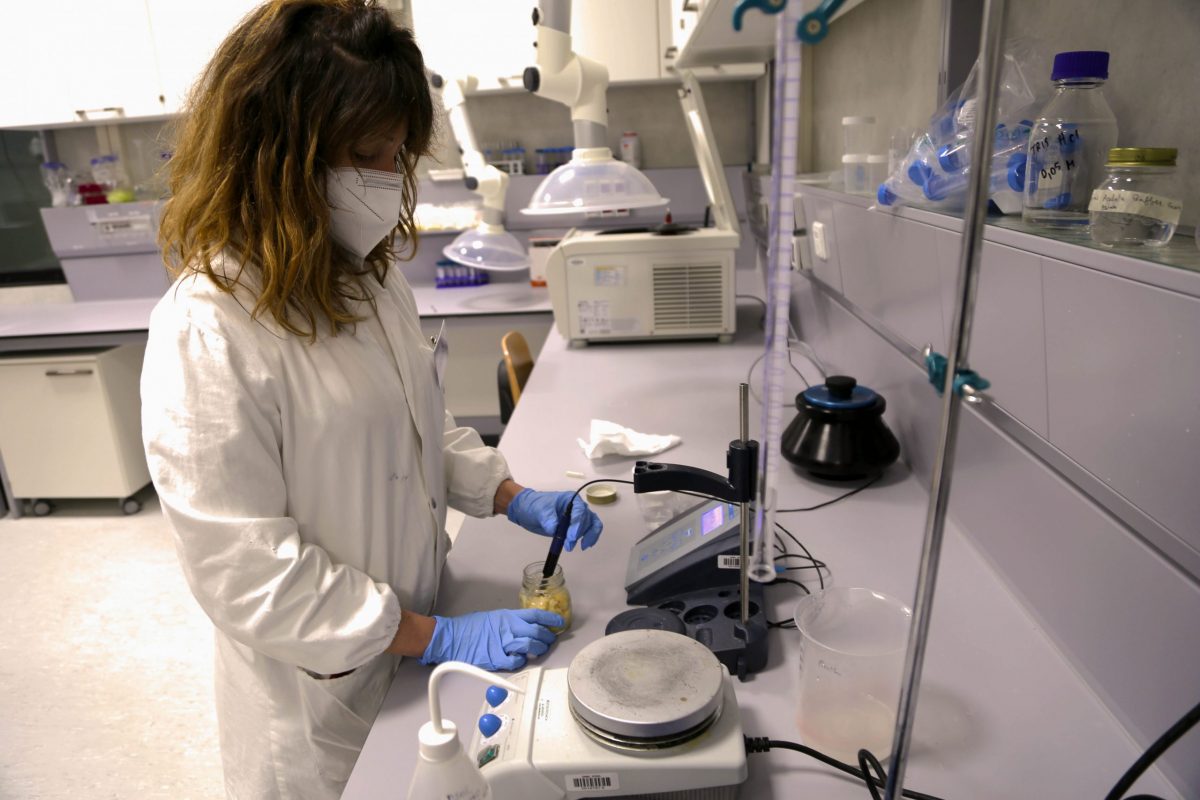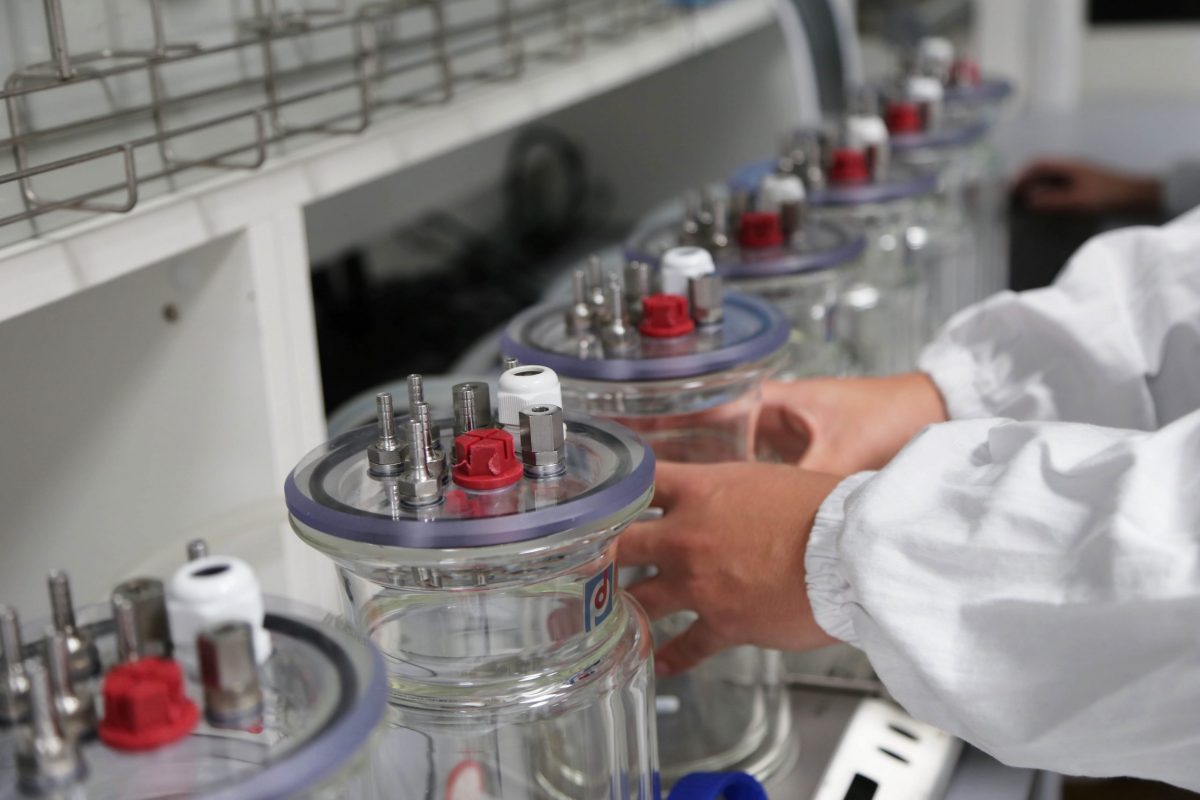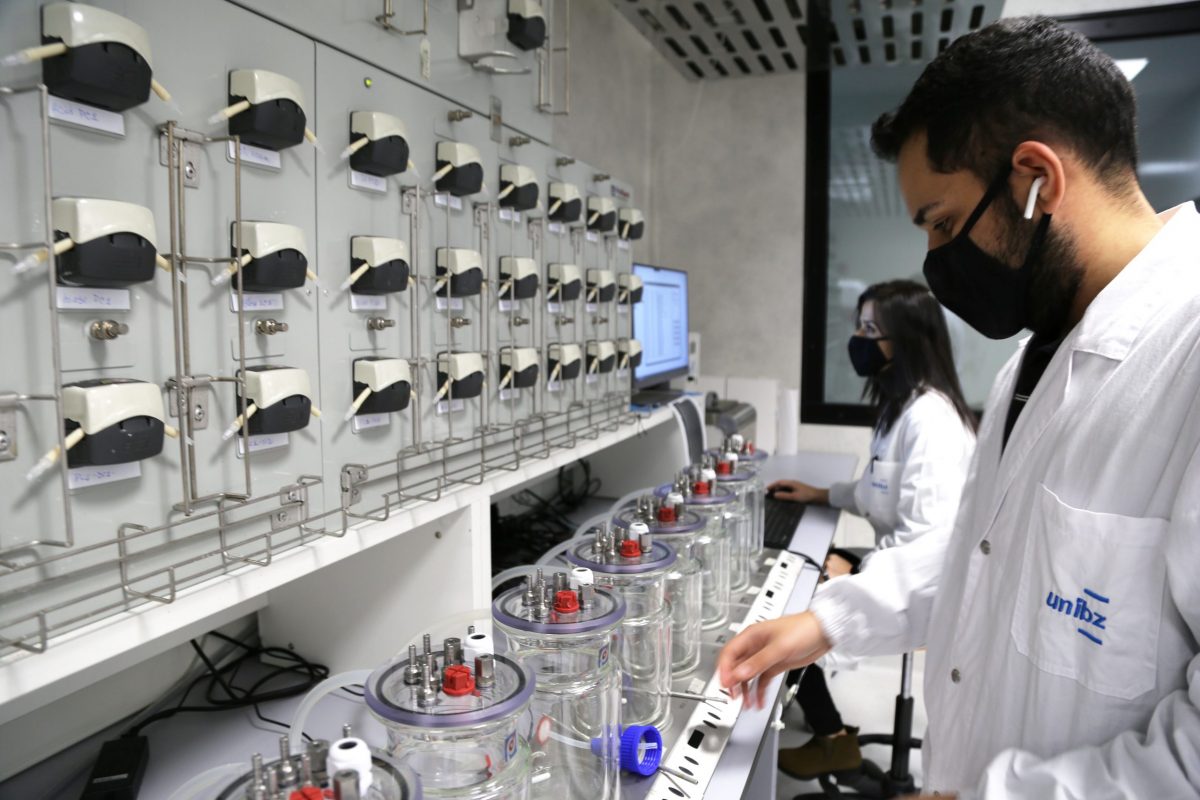Micro4Food: four lines of research
Preserving traditional foods
Micro4Food has four main lines of research. The first – and probably the most important for a region such as South Tyrol, with its established food traditions – aims to preserve traditional foods by finding ways to keep their production processes up-to-date while exploiting or enhancing their health benefits. To this end, microorganisms are carefully selected and monitored to achieve certain effects. This leads to the protection and enhancement of traditional products, while reinforcing certain properties. Thus, in collaboration with the South Tyrolean Dairy Federation, researchers are studying the microbial diversity of South Tyrolean milk from a new ecological perspective in order to determine the cause-effect relationship. More specifically, they are investigating the influence of farming conditions on the milk microbiome in the region. Through this line of research, they aim to protect local microbial biodiversity and assess the implications for dairy biotechnology.

Adding nutritional properties
The second area of research involves selecting microorganisms that can guide sustainable fermentation in order to ensure the bio-preservation of plant matrices with sensory, nutritional, and structural properties similar to the fresh product, and proposing innovative solutions for the production of functional foods. In this area, collaboration is taking place with several key players in the food sector, at both the local and national levels. Essentially, this line of research aims to develop new foods that have additional nutritional properties, while maintaining their authenticity.
Circular economy
A third area of research is linked with the concept of the circular economy and focuses on the reuse of food-industry waste in order to create added value. The aim is to obtain ingredients and natural substances that can be made available to both the food and pharmaceutical industries. An example of this is the European SUSFOOD project Funbrew, of which Micro4Food is a partner. The recovery and valorisation of waste from beer processing through lactic-acid fermentation enables the development of new cereal products enriched with ingredients of high nutritional value, such as breakfast cereals, bread, and pasta.
The role of the bionic gut
Finally, the fourth branch of research focuses on the nutrition-human axis and looks at the effects of ingested food or ingredients on the intestinal microbiome, which is largely responsible for human well-being. To further this branch of research, the labs have acquired a device which simulates the digestion process of the human body. Micro4Food LAB is currently the only university laboratory in Italy that has a real ‘bionic gut’, created to allow researchers to follow and understand the effects of nutrition on the functionality of the human microbiome and metabolome.

The role of the Micro4Food laboratory in the Smart Protein project
At present, Micro4Food is one of 33 partners – including universities, research centres, and food companies – from 21 European countries that are participating in the Smart Protein project. The mission is to find out how to produce new foods based on alternative proteins from plants, fungi, and food-processing waste, ensuring the environmental sustainability of the process as well as food safety.
“Proteins are an indispensable part of the human diet, but the way they are produced and consumed today poses many problems in terms of social, environmental, and economic impacts. We need alternatives that only scientific research can provide”, says prof. Raffaella Di Cagno, Head of the Micro4Food laboratory.
“At a time when the threats of climate change are more evident than ever, ensuring food security also requires a reconceptualisation of production methods. There is an urgent need to find alternative sources of protein to meet the increasing demands of a growing world population and the need for a more efficient use of production resources.” The Smart Protein project will lead to a series of prototypes for alternative protein sources from plants, fungi, and food by-products. European consumers – as well as consumers outside Europe – will thus have access to meat, fish, dairy products, powdered milk for infants, baked goods, and pasta containing alternative proteins of plant origin. The research focus of the Micro4Food laboratory will be on dairy and cereal products (bread and pasta).

